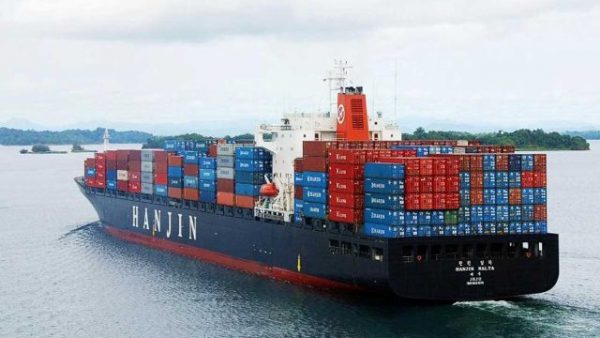Roles Of Ethics And Reputation In Ship Chartering
 Ship chartering highly relies on the relationship between the parties. However, we all know that the shipping market mainly consists of offshore paper companies which sometimes have no assets or real substance and due to this reason, the risk involved is higher. And while in the past the market players were fewer and thus most of the deals were fixed via the phone or just with a handshake, with the development of the technologies and the expansion of the shipping industry with much more companies, the culture of the shipping professionals has changed and their behavior is not always ethical. Therefore, the honesty and the trust between the market players has nowadays been in crisis. Due to this reason and since we believe that ethics and reputation play an important role in building trustworthy relationships and concluding successful business, we conducted a survey in order to study our users’ opinion on the subject matter.
Ship chartering highly relies on the relationship between the parties. However, we all know that the shipping market mainly consists of offshore paper companies which sometimes have no assets or real substance and due to this reason, the risk involved is higher. And while in the past the market players were fewer and thus most of the deals were fixed via the phone or just with a handshake, with the development of the technologies and the expansion of the shipping industry with much more companies, the culture of the shipping professionals has changed and their behavior is not always ethical. Therefore, the honesty and the trust between the market players has nowadays been in crisis. Due to this reason and since we believe that ethics and reputation play an important role in building trustworthy relationships and concluding successful business, we conducted a survey in order to study our users’ opinion on the subject matter.Our survey covered all the sectors of the chartering market and specifically, the sample consisted of about 52% shipbrokers, 20% officers in a charterer’s company and about 13% officers in shipowning companies, while 15% of the respondents were from other shipping sectors (i.e. operators & consultants). To these people, we addressed specific questions in regards to the importance that they give on the reputation of their counterparty and the enforcement of the code of ethics during their business transactions. Also, our respondents were asked to post their view on how we can strengthen the ethical practices in the shipping industry; or at least, how we can discourage people from deviating from the Code of Ethics.
The Code of Ethics is a set of principles and common standards which characterize people’s behavior, the way they interact with each other and the way they are doing business. The essence of the code of ethics in the shipping industry is expressed via the motto “My word is my bond”, which symbolizes the importance of ethics in trading and requires from shipping professionals to work with trust and confidentiality.
It is remarkable that almost the total of our respondents give a high value to the code of ethics since they agreed (about 83%) or partly agreed (about 15%) with the statement that the reputation of their counterparty plays an important role before each fixture in order to decide whether they will enter into firm negotiations with this company or not. Therefore, we see that someone with a bad reputation is a no-go for the majority of the chartering professionals.
In order for people to evaluate the performance of their counterparties, they are used to ask for details of the company that they will deal with, the background of the persons in charge as well as information on recent fixtures previously concluded. It seems that this stage is very important and followed by about the 85% of our respondents. By using this information, the ship-owner or the charterer may ask references from other people in the market who have done business with their counter-party and, in fact, those who do not follow the ethics may be accompanied by negative reviews and therefore excluded from future business.
Further to this requested information, additional measures which can be used when dealing with an unknown client for the first time are the following:
— Asking for financial or banking information
— Asking for KYC documents
— Requiring a deposit payment
— Requiring an amount placed in an escrow account as security
— Asking for full information on the chain involved (shippers, receivers, agents etc)
In order to avoid entering into such a complicated transaction with unknown counterparties, almost the ¾ of our respondents are prepared to give some discount or other comfort to an A1 shipowner or charterer in order to deal with a reputable counterparty, since they say that most of them have never encountered an unresolved conflict with such A1 class company.
Furthermore, it seems that our respondents give high value to the chartering code of ethics since only about 30% have cancelled a contract of affreightment, while the 27% of them paid cancellation fees either partially (about 20%) or in full (about 7%).
However, people are used to deviating from the code of ethics and a few cases addressed by our respondents as a violation which created conflicts are the following:
— The other party used its leverage in order to take advantage.
— Laytime calculation which was based on a statement of facts which was manipulated by the shipping agent.
— Non-payment of demurrage after completion of discharge. In this case, the ship-owner may not be able to easily recover same.
— The Charterer tried to load a cargo which was not in a good condition.
— The counter-party did not perform on a contract of affreightment which was just fixed.
— Back-trading by offering a lower freight than previously offered.
The above is just a list of violations described by our respondents but, unfortunately, we realize that in real life this list of violations is endless. Though the code of ethics is still very important for the shipping industry and most professionals -especially those who love shipping- are trying hard to protect the ethics and take measures against those who do not follow the basic rules. These professionals or companies are usually excluded from trade while they are negatively affected through the bad mouthing. But are there any other actions to be taken?
A transparent tool which could be used between the market professionals would be a public database which could include information of those who do not act prudently. More than half of our respondents responded that it would be necessary and useful to build such a public black list for Shipowners, Charterers and Shipbrokers. Probably, this could save time from the initial background check which takes place before they enter into firm negotiations.
However, it seems that the most common signal which has been used within ship chartering community is the private warning (18.30%), which in fact, does not expose the unethical actions into the market and does not warn third parties about the bad actions of a company or a person. This private warning is followed by more drastic measures such as the legal actions or arbitration proceedings (about 17% and 15% accordingly) while the e-mail circulation is another very famous measure against dishonest or untrustworthy counterparties.
From our users’ responses, we see that trust is a very important element for building your reputation since ship chartering is all about relationships between the parties. If someone does not respect its counter-party or intentionally tries to cause damage to others, the news would easily spread worldwide. We should keep in mind that the shipping sector offers equal opportunities both for big and small companies, however, none is happy to deal with people or companies who are not honest, do not show trust and respect for their counter-parties or with those who use privileged information for their benefit only.
However, a lot of us while trading a vessel or cargo may have already come across such unethical tactics or behaviors, which are not uncommon in shipping. However, professionals who act like this may damage their reputation, while those who deal with counter-parties who have such unethical behavior are also affected.
The OpenSea team fully shares the values of ethics and takes all actions which are required to further support them in a digital age. For this reason, besides authentication of our users, we have built a special mechanism in our online marketplace, by which each party of the fixed charter can leave public feedback on the performance of its counterparty which subsequently adds transparency and trust to the whole market.
Culled from https://opensea.pro/blog








